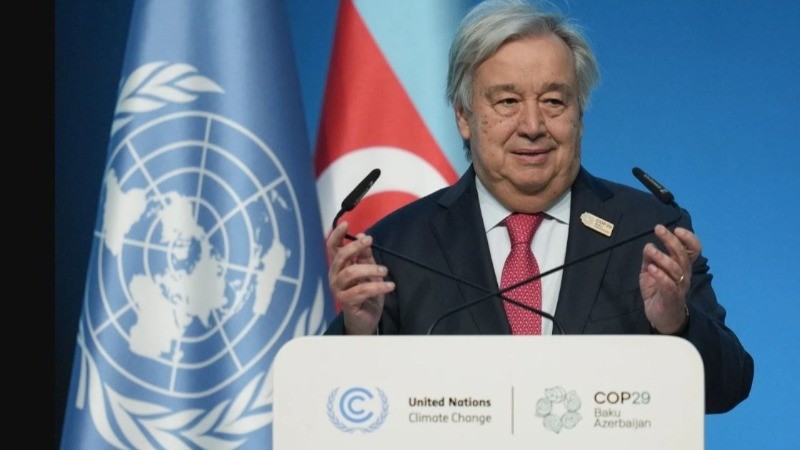
The United Nations and other international organizations are preparing for the return of Donald Trump to the U.S. presidency. Before his first term, Trump famously described the UN as "just a club for people to get together, talk, and have a good time." During his previous tenure, he halted funding for various UN agencies, exited both the cultural organization and the Human Rights Council, and imposed higher tariffs on China and U.S. allies, disregarding World Trade Organization regulations. The U.S., as the largest financial contributor to the UN, covers 22% of its regular budget.
Trump’s latest approach to international diplomacy began to take shape when he chose Republican Representative Elise Stefanik of New York as the U.S. Ambassador to the UN. Stefanik, who is a key figure in the House, has advocated for a thorough review of U.S. financial support to the UN and called for a freeze on funding to its agency for Palestinian refugees, known as UNRWA. President Joe Biden had already paused this funding after UNRWA dismissed several employees in Gaza suspected of involvement in the Hamas-led attack on October 7, 2023.
Conservative Agenda and UN Policies
Speculation surrounds how Trump's policies will affect the UN this time around. Trump has previously expressed skepticism about climate change and backed the fossil fuel industry, but he has also collaborated with figures like Elon Musk, who promotes sustainable energy. In his first term, Trump supported rapid vaccine development during the COVID-19 pandemic but also aligned with anti-vaccine activist Robert F. Kennedy Jr.
Richard Gowan, a UN expert with the International Crisis Group, said Trump likely does not see the UN as a venue for major political negotiations but rather as a stage to promote a conservative agenda. His past actions offer clues—Trump withdrew the U.S. from the 2015 Paris Agreement, a move he is expected to repeat if re-elected. He also pulled the U.S. out of UNESCO and the Human Rights Council, citing bias against Israel, although Biden rejoined these organizations.
Trump’s administration had cut funding for the UN Population Fund, claiming it supported abortion services, which the agency denies. The U.S. later rejoined under Biden. Trump has historically shown little interest in multilateral efforts, which UN Secretary-General Antonio Guterres considers crucial to the organization's mission.
A New Global Landscape
The global stage has shifted significantly since Trump first took office in 2017, declaring "America First." New conflicts have emerged in regions like the Middle East, Ukraine, and Sudan. North Korea’s nuclear capabilities have expanded, and concerns over Iran’s nuclear program have intensified.
The UN Security Council is more divided than ever among its five permanent members—Britain, China, France, Russia, and the U.S.—making it difficult to resolve these global crises. Respect for international law in conflict zones is also diminishing.
John Bolton, a former national security advisor during Trump's presidency, said the current geopolitical landscape resembles the Cold War. He pointed out that Russia and China are backing nations like Iran and North Korea, complicating global diplomacy. Bolton anticipates a challenging term for Stefanik due to the wide range of complex issues facing the Security Council.
The Council’s effectiveness has been hampered since Russia’s 2022 invasion of Ukraine, as Russia wields veto power. A resolution demanding a cease-fire in Gaza also failed to gain traction, partly due to U.S. backing of Israel. Republicans in Congress have voiced anger over UN criticisms of Israel's actions in Gaza, and Gowan predicts they will push Trump to implement severe budget cuts to the UN.
Uncertain Future for UN Operations
The future of the UN's everyday humanitarian work is now uncertain. Geneva, a hub for many UN agencies that focus on areas like human rights, migration, and climate, may face challenges. Diplomats are advising caution, noting that Trump generally continued humanitarian aid funding in his first term.
However, trade could become a point of contention again. Trump previously sidestepped World Trade Organization rules, imposing tariffs on goods from various countries, including allies. His new threats, such as a proposed 60% tariff on Chinese goods, could have significant global trade implications.
Despite potential conflicts, the UN's structure has mechanisms to maintain momentum. At a recent climate summit in Azerbaijan, Secretary-General Guterres hinted at resilience, saying, "The clean energy revolution is here. No group, no business, no government can stop it."